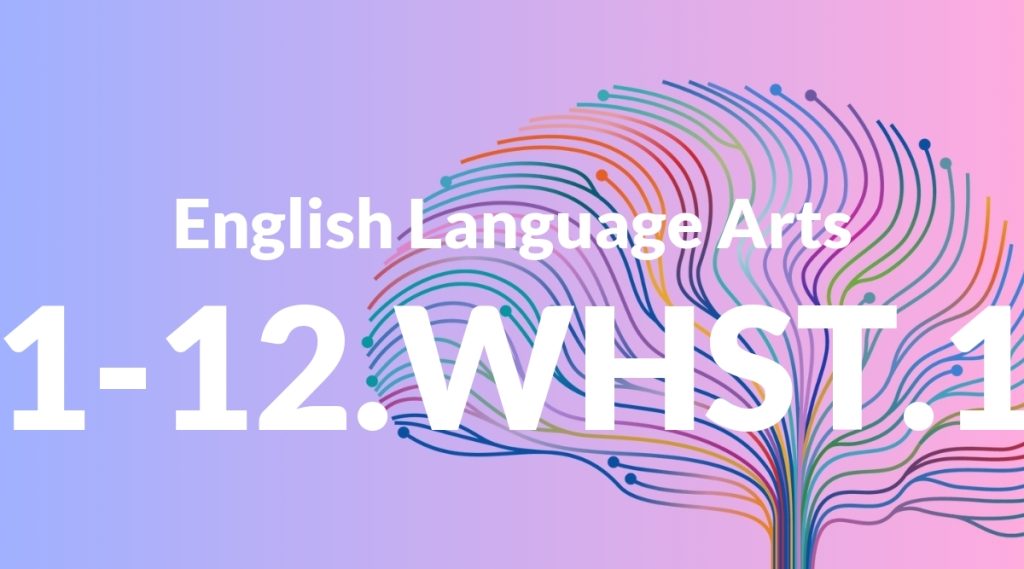Standard: 11-12.WHST.1e – Provide a concluding statement or section that follows from or supports the argument presented.
Grade level: Grade 11-12
Subject: English Language Arts
Domain: Writing: History, Science & Technical Subjects
Teacher Overview
This standard focuses on the importance of concluding statements in writing. A strong conclusion not only summarizes the main points but also reinforces the argument and provides closure. Mastering this skill is crucial for effective communication and is a key component of persuasive and analytical writing. Students should have a solid understanding of essay structure and the ability to construct logical arguments supported by evidence. Familiarity with introductory and body paragraphs is essential.
Students will be able to create well-structured and compelling conclusions that enhance their overall arguments. This skill will be valuable in both academic and professional writing contexts.
Common Misconception 1
A common misconception is that a conclusion is merely a summary of the main points. This is incorrect because a conclusion should also provide insight or reflect on the significance of the argument, adding depth to the overall piece.
Intervention 1
To address this misconception, provide examples of strong conclusions that go beyond summarizing. Encourage students to think about the broader implications of their arguments and how they can leave a lasting impression on the reader.
Common Misconception 2
Another misconception is that a conclusion should introduce new information or arguments. This is incorrect because a conclusion is meant to wrap up the existing argument and provide closure, not to present new points.
Intervention 2
To remediate this, teach students to focus on reinforcing their main argument and providing a sense of closure. Use examples to show how introducing new information in the conclusion can confuse the reader and weaken the overall argument.
Prerequisite Knowledge
Students should understand basic essay structure, including introductions, thesis statements, and body paragraphs. They should also be familiar with constructing logical arguments and supporting them with evidence.
Subsequent Knowledge
After mastering this standard, students will be able to create more cohesive and compelling arguments in their writing. They will also be better prepared for college-level writing and professional communication tasks.
Instructional Activities
- Analyze strong conclusions in sample essays
- Practice writing conclusions for different types of arguments
- Peer review and provide feedback on each other’s conclusions
- Rewrite weak conclusions to make them stronger
- Discuss the importance of conclusions in different writing contexts




